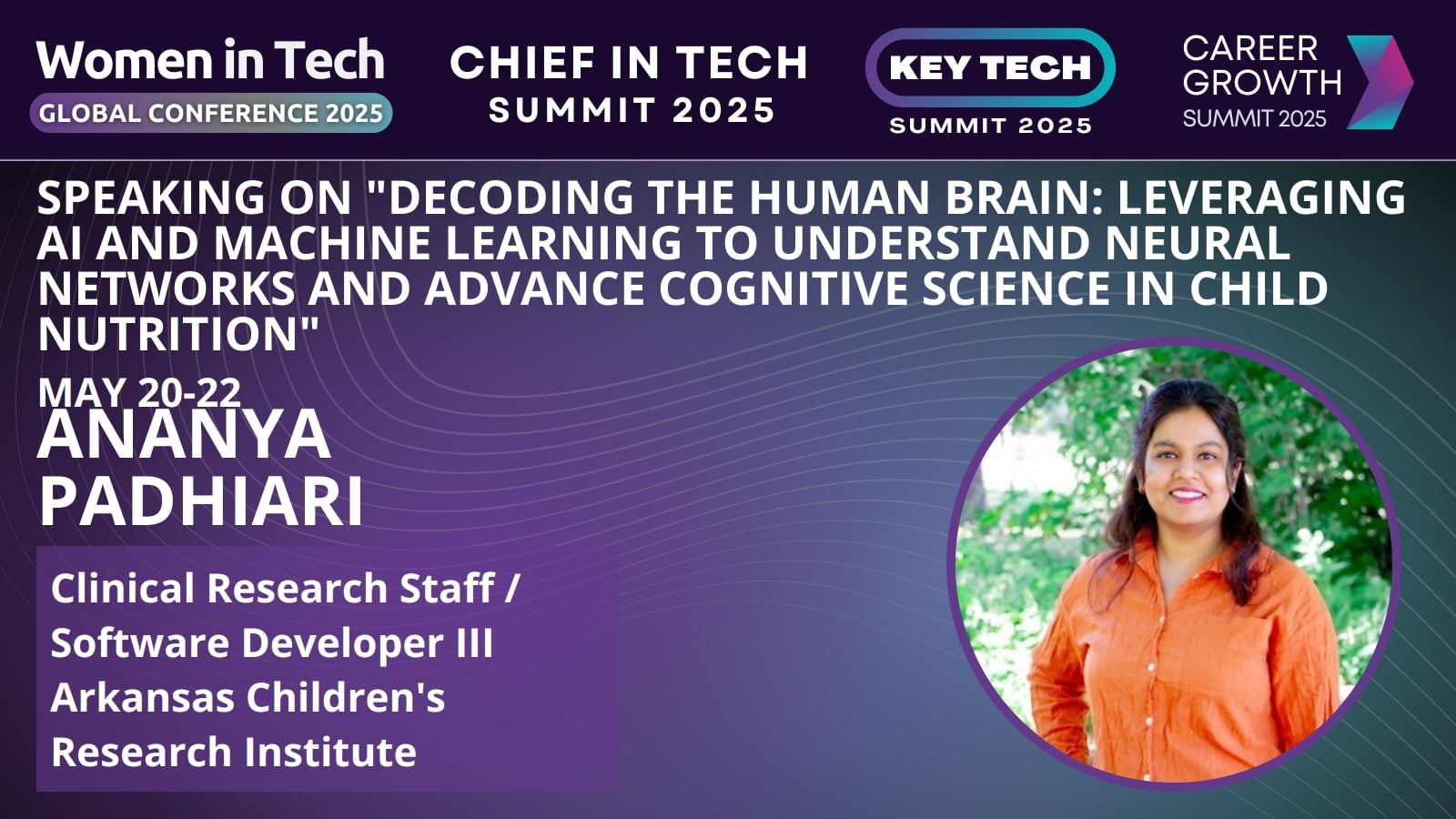Vote by Sharing
Unite 100 000 Women in Tech to Drive Change with Purpose and Impact.
Do you want to see this session? Help increase the sharing count and the session visibility. Sessions with +10 votes will be available to career ticket holders.
Please note that it might take some time until your share & vote is reflected.
Session: Decoding the Human Brain: Leveraging AI and Machine Learning to Understand Neural Networks and Advance Cognitive Science in Child Nutrition
The human brain, with its 86 billion neurons and trillions of connections, remains one of the most intricate and fascinating systems in science. Understanding its functionality has challenged neuroscientists for decades, but advances in Artificial Intelligence (AI) and Machine Learning (ML) are transforming this frontier.This talk will delve into how AI and ML, inspired by the brain's architecture, are being utilized to decode its complexities and advance cognitive science. By analyzing complex neuroimaging data, uncovering patterns of brain connectivity, and modeling neural plasticity, these technologies are unlocking unprecedented insights into cognitive processes and neurological disorders. We will explore groundbreaking innovations such as brain-computer interfaces (BCIs), enabling patients with disabilities to regain communication and movement, and how ML is enhancing our understanding of neuroplasticity and recovery post-injury.
Crucially, this presentation will connect these advancements to child nutrition and its critical role in brain development. By integrating vast datasets on brain development, cognition, and nutrition, AI and ML can reveal how nutritional factors, such as iron, DHA, and zinc, influence neural connectivity, cognitive milestones, and long-term brain health. Predictive models powered by ML are paving the way for personalized nutritional strategies, optimizing child nutrition to support cognitive performance and prevent developmental delays.
While celebrating the transformative potential of AI and ML in neuroscience and child nutrition, this talk will also address ethical considerations, particularly in applications like mind-reading technologies and cognitive enhancements. By decoding the brain with AI, we are not only pushing the boundaries of technology and science but also uncovering innovative strategies to support healthy brain development in children and laying the foundation for a brighter future.
Key Takeaways
- 1. AI and ML in Brain Science: Discover how Artificial Intelligence and Machine Learning are revolutionizing our understanding of the brain's neural networks, cognitive processes, and neuroplasticity.
- 2. Linking Nutrition and Brain Development: Learn how AI-driven insights reveal the critical role of nutrients like iron, DHA, and zinc in shaping neural connectivity, cognitive milestones, and long-term brain health in children.
- 3. Advancing Personalized Nutrition: Explore how predictive models powered by Machine Learning are paving the way for tailored nutritional strategies to optimize brain development and prevent developmental delays.
- 4. Real-World Applications in Neuroscience: Gain insights into cutting-edge innovations, such as brain-computer interfaces (BCIs) and recovery modeling, that demonstrate the practical implications of AI in understanding and improving brain function.
- 5. Ethical Considerations: Discuss the challenges and ethical implications of using AI in neuroscience, including concerns around mind-reading technologies, cognitive enhancements, and data privacy.
Bio
Ananya Padhiari is a Clinical Research Staff and Software Developer III at Arkansas Children’s Research Institute. With over a decade of IT experience and a recent focus on research, Ananya contributes to children’s nutrition studies by analyzing data, generating reports, and writing SQL queries for manuscripts, reviewed by project directors. They design web applications, dashboards, and APIs to enhance user experience. Skilled in C#, .NET Framework, and database migration, Ananya also leverages Artificial Intelligence and Machine Learning to optimize data analysis and reporting, bridging technology and research to support critical investigations in nutrition and health.


